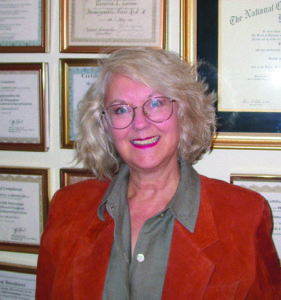
The bustle and excitement of the holidays are over, but it’s still cold out there. The shorter days and cold weather, and even the loneliness after the holidays, send some people into depression. So let’s take a look at winter in our yearly cycle and find a way to embrace its lessons.
Winter is a time for going inward, slowing down, and resting. It is the yin time of the year. The fauna hibernate, the flora stop growing, and we humans sleep more. Or if we’re not, we should be. Sleep is restorative. Our ancestors didn’t have electricity and electronic devices to keep them awake. They also had fewer chronic problems in their health, though infections were still a problem.
Deep in your brain, your pineal gland produces your naturally occurring melatonin. Going to bed earlier will increase the production of this hormone, which helps you sleep. Taking even a few too many milligrams of manufactured melatonin, may make your pineal gland “forget” how to work. Light emitting devices (TVs, phones, computers, parties!) will decrease production of melatonin.
Foods high in naturally occurring melatonin can boost your body’s levels in as little time as three days (or nights). A cup of purple grapes will work, as will cherries. Cherries can be in any form from frozen, dried, or as juice. Even one ounce of cherry juice can give you an extra half-hour of sleep! If you sleep with a partner who reads or watches TV, wear an eye mask as any light entering your eyes decreases melatonin.
For thousands of years people slept ten to twelve hours in the winter. Those who slept long had decreased rates of dementia. Lack of sleep leads to amyloid plaques in the brain. Amyloid plaques are the classic lesion of Alzheimer’s disease. In a 2013 study in JAMA Neurology, found that those who had the worst sleep quality had a five times greater risk of Alzheimer’s than those who had the benefit of sound sleep.
So no need to feel guilty about a nap, especially in wintertime! People with poor sleep quality had a decrease volume in the cortex, frontal, parietal, and temporal lobes of the brain. Granted, we don’t use our full brain capacity, but we want it to work as well as possible for as long as possible, especially as we age.
The British Medical Journal, in 2015, found poor sleep to be a hallmark sign of ADHD in children and adults. Toddlers need naps at least until three or four years old. Adults can simply choose to go to bed earlier. The Journal of Sleep found those who sleep less have increased anxiety, decreased joy in life, and a decreased ability to solve problems.
Sleep increases creativity and problem solving. Got a problem? Sleep on it. This time of hibernation in the cold allows us time to conserve energy for the next cycle, when the rains lighten and the breezes soften.
No Comments
Leave a comment Cancel